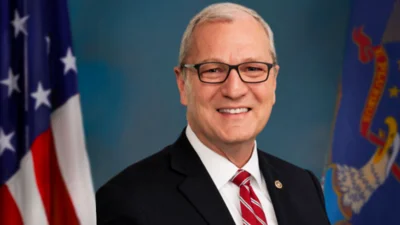Tom Claeys - State Forester | North Dakota Forest Service
Tom Claeys - State Forester | North Dakota Forest Service
The Department of the Interior has announced the availability of over $20 million in funding to enhance local governments' wildfire response capabilities. This initiative is part of President Biden's Investing in America agenda and aims to convert vehicles into wildland fire engines. The pilot program, which began in February, supports small and remote emergency response agencies in expanding their capacity to tackle wildfires exacerbated by climate change, drought, and increasing fire incidents.
Secretary Deb Haaland emphasized the urgency of expanding firefighting resources due to unprecedented wildfire activity this year. "Through this pilot program, President Biden’s Investing in America agenda is providing resources to help more local governments rapidly respond when a wildfire threatens their communities and landscapes," she stated.
Eligible local governments serving populations of 50,000 or less can use the funds to purchase slip-on tanker units. These units enable quick conversion of trucks and other vehicles into wildland fire engines. The Bipartisan Infrastructure Law has allocated a total of $50 million for this pilot program, with up to $20 million available in this second round of funding. Previously, nearly $1.3 million was awarded to 21 local emergency response agencies.
The Slip-on Tanker Pilot Program aims to improve coordination between the Interior Department, states, and local communities against wildfires. Enhanced collaboration is a key recommendation from the Wildland Fire Mitigation and Management Commission's final report released in September 2023. The Commission was established under the Bipartisan Infrastructure Law to provide recommendations on federal policies related to wildland fire management.
This funding is part of over $1.1 billion from the Bipartisan Infrastructure Law aimed at mitigating wildfire risks on public and Tribal lands while supporting wildland firefighters since its enactment in 2021.
Grant amounts will vary from $10,000 to $500,000, with applications due by February 26, 2025.






 Alerts Sign-up
Alerts Sign-up